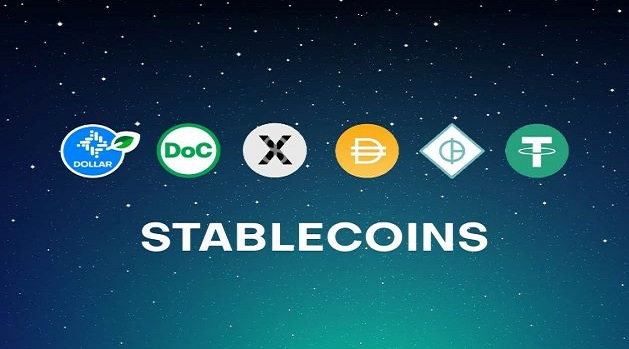E-Business
Platform Economy Of The Future, Pathway To Drive Growth, Jobs Across Africa

By William Mzimba
Many companies, whether they realize it or not, have already taken steps to embed themselves into the digital ecosystems that will drive their growth in future.
However, the pace of adopting new digital platforms for doing business needs to increase – especially in Africa. These platforms are business models that create value by facilitating exchanges between two or more interdependent groups, usually consumers and producers.
According to the Wall Street Journal platform companies are major drivers of innovation as the top companies set the standards for the digital transformation taking place around the world. Traditional companies are challenged to keep up or risk being left behind. As platforms become the new normal for how business is done, African companies must seize this opportunity to begin to build a new digital value chain.
Already, more than a quarter (27%) of the executives Accenture recently surveyed report that digital ecosystems are transforming the way their organizations deliver value. And we found that 81% of executives say platform-based business models will be core to their growth strategy within three years.
The mandate for leaders is to capitalize on new relationships, building a network of digital partners that will not only enhance their existing business, but also allow them to forge their way into newly emerging digital ecosystems.
What we are seeing is that entire ecosystems of customers are aggregating around several new digital platforms, and businesses are more motivated than ever before to take advantage of these entry points.
Communication platforms like WeChat and WhatsApp, and Artificial Intelligence intermediaries like the Google Assistant, Alexa, and Siri represent distinct ecosystems delivering unprecedented access to customers – and businesses are flocking to them.
A couple of examples include Hyatt Hotels, which uses Facebook Messenger to let guests do everything from booking and checking existing reservations to ordering room service during a stay, while Capital One bank developed a ‘skill’ for Amazon Echo’s Alexa, allowing people to check their accounts and pay credit card bills via the Echo device.
It is little surprise that the trend two of our Tech Vision 2017 study highlights that in the State of the Cloud survey 95% of respondents reported using public, private, or hybrid cloud technology, while the CIO Strategic Partner Index run by the IDC reports that 29% of IT leaders are spending more than half their IT budget on external providers. Each platform commitment means easier future engagement with other companies on the platform using the same infrastructure.
However, of the 176 platform companies included in a recent report, The Rise of the Platform Enterprise: A Global Survey led by Peter Evans and Annabelle Gawer and sponsored by the Center for Global Enterprise, Asia has the largest number with 82, 64 of which are in China. North America has 64, with 63 in the US.
Europe is a major consumer of platform services, but it’s home to relatively few platform companies –27 spread across 10 countries, 9 of which are in the UK.
It is concerning Africa and Latin America have a number of small platform companies, only 3 of which have met the $1 billion valuation threshold for inclusion in the survey.
More African companies need to decide which ecosystems to join and which roles to play as the technology changes are only the beginning.
How do African companies begin to close the gaps? An important way to get moving on this journey is to conduct an audit identifying how many internal and external platforms you are using and the goals for their use. Identify and address unnecessary overlaps.
Determine the platforms your organization most relies on, as well as those that most depend on you. These are the ecosystems where your organization should hold its strategic and market strengths.
Over the next 100 days, look to essentially develop a comprehensive strategy to establish the foundation for your platform business model and ecosystem.
During this phase you should appoint a C-suite sponsor to oversee a team that is responsible for championing your new ecosystem and digital partnership strategies.
Then ever the next year, leadership should have achieved comprehensive understanding of the new rules of business, developed a platform business model strategy, and started to test it with the launch of a small pilot program.
Companies should keep expanding the conversation: for instance, in the first 100 days have a strategy summit with your closest partners to understand their goals for the future. Uncover shared goals and commit to developing a strategic plan for achieving them together.
Consider your organization’s future through the lens of the biggest disruptions shaping your market, from inside and outside your industry.
Craft the ideal role of your company in this future, and develop a shortlist of partners who can help make it a reality. And remember to develop metrics to quantify the results of ecosystem participation.
Many global brands are already taking the bold steps needed. The digital ecosystem is, for instance, totally redefining what automakers do. Rather than just building cars, they’re engaging with customers throughout the vehicle lifecycle, directly managing software upgrades, diagnostics, and safety.
In the insurance industry, pulling down driving data from connected car platforms has enabled new services such as pay-per-mile insurance with newcomers like Google and Metromile to challenge the industry status quo. The opportunities are endless, no matter what industry you are in.
General Motors kicked off 2016 with a $500 million investment into ride-share platform Lyft. The move gave GM the inroads to launch their Express Drive service, an exclusive offering for successful, but car-less, Lyft driver applicants to rent a car directly from GM and get to work right away.
The program was remarkably successful in the short term, opening a new line of business for GM: by July, 30% of new Lyft drivers were requesting an Express Drive vehicle in their sign-up.
In addition to partnering with Lyft, GM also made a $1 billion-plus acquisition of the autonomous vehicle software company Cruise Automation, and another billion-dollar investment in building an autonomous vehicle testing facility in Detroit.
This shows how platforms are rapidly becoming the central hubs for the rich and complex digital ecosystems that companies want to access. Consider the fact that 70% of ’unicorn’ startups (over $1 billion!) are platform companies.
Other companies such as personal car-rental app Turo and group dining experience Feastly have introduced their own offerings, as have dozens of start-ups, each with their own angle and offering. LiquidSpace, which lists offerings in more than 500 cities across the US, Australia and Canada, offers a platform for renting workspaces and meeting rooms by the day or hour.
In South Africa, a good example of a company embracing the platform economy and reaping rewards is Discovery Vitality, while Discovery’s proposed bank is another example of the evolution of this concept into other exciting sectors.
The retail market for consumer goods in SA received a shot in the arm in 2015 when Kalahari was merged with Takealot, with the technology platform cleverly harnessed to drive growth since then.
Remember the sharing economy brings people together through technology to exchange or rent access to goods and services, so entrepreneurs are building this economy by leveraging emerging digital technologies to meet customer needs in new and disruptive ways.
Digital and mobile technologies have combined with public support to create a host of opportunities to transform the way government manages the infrastructure it has already acquired. For instance, through MuniRent, six local governments in Michigan are already renting equipment to and from each other.
How African companies and governments react to this change brought about the platform economy will define their prospects going forward.
The platforms they use will serve as the pathways to the new digital economies that will drive growth and jobs across the continent. They will form the pillars of entire value chains in the future and so African companies need to ensure they make these decisions wisely – and fast because there is no doubt that the digital partnerships African companies make today will determine how successful they will be tomorrow.
Platform economy is one of the topics to be discussed at the Accenture Innovation Conference taking place on 17 October in Johannesburg.
E-Business
Chams Carves Out Subsidiary to Support Africa’s Digital Transformation

Chams Holding Company Plc, (Chams Holdco), digital payments and verification firm, has created a new subsidiary which is expected to strengthen the push for Africa’s digital transformation.

The creation of the new subsidiary, ChamsCorp Plc, which took effect from February 1, was made known in a filing to the Nigerian Exchange Limited , according to an announcement.
Chams said that the new subsidiary, which is its 5th, will give a new dimension to its more than 40 years of work in building the digital ecosystem not only in Nigeria, but across the continent and the rest of the world.
The newly created company will focus on three major aspects, namely the manufacturing of digital devices and development of digital infrastructure and services; data center design, construction and operations, and the development and implementation of AI infrastructure and intelligent systems.
It will also contribute to its parent company’s digital ID, digital verification, and trust services offering.
“For nearly four decades, we’ve enabled trust in transactions and identity. Now, we go furthe”
Chams is expanding into AI, data centre infrastructure, and intelligent systems, building the backbone for Africa’s digital transformation,” the company wrote in a LinkedIn post.
“We are not just participating in the future. We are engineering it,” the message added.
According to the Chams announcement, a decision of its Board of Directors appointed members of the pioneer board of ChamsCorp Plc, with renowned banker Mohammed Bashir Yunusa designated as Chairman.
He is described as a well-known finance expert who specializes in deal structuring, corporate and retail finance, business strategy, digital transformation, and Islamic Finance and Banking.
With more than 10 years of experience in the financial services industry, Yunusa currently serves as head of Consumer and Digital Banking for Non-Interest Banking Retail at Sterling Bank Nigeria, and will also serve as a non-executive director on the board.
“Chamscorp is designed to take our most ambitious ideas to market at speed and scale. As Africa’s digital economy evolves, we are focused on delivering transformative solutions that empower governments, businesses, and citizens alike,” Femi Oyenuga, CEO, Chams, commented on the development.
Chams has over the years played a major role in contributing to Nigeria’s digital ID ecosystem development to facilitate access to financial services.
In 2023, the company Group Chairman publicly stated that in providing such digital services to the Nigerian government, it had incurred debts estimated at $100 million and were planning to change their business model as a result.
E-Business
Nigeria, South Africa Drive Stablecoin Spending in Africa

Africa has emerged as the global frontrunner in stablecoin adoption, with Nigeria and South Africa leading the charge with the fastest adoption rate, as transactions surge across the continent.

This is according to the Stablecoin Utility Report, compiled by YouGov on behalf of fintech firm BVNK.
The study, conducted in partnership with Coinbase and Artemis, surveyed over 4 600 early adopters and crypto-natives in 15 countries across five continents.
It shows people are turning to stablecoins to move money more quickly, securely and affordably – and how this shift in behaviour is becoming a worldwide trend beyond its roots in the Global South.
Stablecoin adoption is accelerating particularly rapidly across Africa in 2026, driven by currency volatility, high inflation and the need for cheaper, faster cross-border payments, it finds.
The Stablecoin Utility Report shows that 79% of African respondents hold stablecoins − the highest ownership rate globally − while 76% say they intend to acquire them in the near future.
Nigeria and SA lead the continent in everyday stablecoin spending, highlighting a shift from holding digital dollars as a store of value, to actively using them for commerce.
The appetite to be paid in stablecoins is even stronger: 95% expressed interest in receiving income via dollar-pegged digital assets, whether for salaries, freelance work or cross-border services, according to the study.
Anthony Yim, co-founder and CEO of crypto research firm Artemis, explains: “We’re experiencing a significant behavioural shift in the way people are using stablecoins.
“Crypto natives and early adopters are fully on board with stablecoins, using them to pay and be paid. This is driving mainstream, global adoption – stablecoin supply has increased 500% over the past five years. Alongside the passage of multiple legislation initiatives in numerous countries, it’s clear we’re experiencing a tipping point.”
From hedge to household spending
Unlike in some developed markets where stablecoins are viewed primarily as a payments upgrade, African users are deploying them as practical financial tools. Key use cases include hedging against inflation, facilitating remittances and funding day-to-day purchases.
The report finds that 92% of African respondents say the condition of their national economy directly affects their stablecoin usage − a reflection of currency volatility, capital controls and high remittance costs across several markets.
Africa also recorded the highest likelihood globally (89%) of users adopting stablecoin-linked debit cards, signalling demand for tighter integration between digital assets and traditional payments.
Infrastructure, not ideology
Taken together, the findings reinforce a broader thesis: stablecoins are evolving beyond a payment method into payments infrastructure, states the report.
For individuals, this means receiving income faster and at lower cost. For businesses, it enables borderless treasury operations and supplier payments. For financial platforms, it opens opportunities to embed stablecoin wallets, debit cards and cross-border settlement into core offerings.
This demand for institutional-grade integration is evident globally, with 77% of survey respondents saying they would open a stablecoin wallet if offered by their primary bank or fintech provider.
As adoption deepens in Africa and regulatory frameworks mature in developed markets, the data suggests stablecoins are no longer a niche crypto product − but a structural layer in the future of global money movement, notes BVNK.
E-Business
Kaspersky Reports 15% Growth in Malicious email Attacks in 2025

According to Kaspersky telemetry, almost every second email – 44.99% of global traffic – was spam in 2025. Spam consists not only of unsolicited emails, but can also include various email threats such as scam, phishing and malware.

In 2025, individuals and corporate users encountered over 144 million malicious and potentially unwanted email attachments, representing a 15% increase compared to the previous year figures.
In 2025, APAC had the largest share of email antivirus detections: it reached 30%, followed by Europe with 21%. Next came Latin America (16%) and the Middle East (15%), Russia and CIS (12%) and Africa (6%). As for individual countries, China had the highest rate of malicious and potentially unwanted email attachments, with the share of email antivirus detections of 14%. Russia ranked second (11%), followed by Mexico (8%), Spain (8%) and Turkey (5%).
Email antivirus detections peaked moderately in June, July and November.
Key trends in email spam and phishing
Kaspersky’s annual analysis has also identified several persistent trends in the email spam and phishing threat landscape that are expected to continue into 2026:
- Combination of various communication channels. Attackers lure email users into switching to messengers or calling fraudulent phone numbers. For instance, scam investment mailings may redirect victims to fake websites, where they are asked to provide their contact information, and then cybercriminals will follow up with a phone call.
- Usage of diverse evasion techniques in phishing and malicious emails. Threat actors frequently try to disguise phishing URLs, for example, with the help of link protection services and QR codes. These QR codes are often embedded directly in email bodies or within PDF attachments, which not only conceals phishing links but also encourages users to scan them on mobile devices, potentially exploiting weaker security measures than corporate PCs.
- Mailings exploiting diverse legitimate platforms. For example, Kaspersky experts discovered a fraudulent tactic that abuses OpenAI’s organisation creation and team invitation features to send spam emails from legitimate OpenAI addresses, potentially tricking users into clicking scam links or dialing fraudulent phone numbers. Additionally, a calendar-based phishing scheme, which originated in the late 2010s, resurfaced last year with a focus on corporate users.
- Refining tactics in business email compromise (BEC) attacks. In 2025 attackers attempted to become even more persuasive by incorporating fake forwarded emails into their correspondence. These emails lacked thread-index headers or other headers, making it difficult to verify their legitimacy within an email conversation.
“Email phishing shouldn’t be underestimated. Our report reveals that one in ten business attacks starts with phishing, with a significant proportion being Advanced Persistent Threats (APTs). In 2025, we saw an increase in the sophistication of targeted email attacks. Even the smallest details are meticulously crafted in these malicious campaigns, including the composition of sender addresses and the tailoring of content to real corporate events and processes.
“The commodification of generative AI has significantly amplified this threat, enabling attackers to craft convincing, personalised phishing messages at scale with minimal effort, automatically adapting tone, language and context to specific targets,” comments Roman Dedenok, anti-spam expert at Kaspersky.

 News3 days ago
News3 days agoAfrican Leaders Highlight Africa’s AI Ambitions

 General News3 days ago
General News3 days agoNDPC Orders Probe into Temu over Alleged Data Privacy Breaches

 Telecom2 days ago
Telecom2 days agoTerra Moves to Expand in African Drone Sector, Secures $22m Funding

 Telecom3 days ago
Telecom3 days agoMTN, BUA, Dangote & Other Industry Giants Triumph at NGX Made of Africa Awards

 Telecom3 days ago
Telecom3 days agoX Suffers Global Outage, Millions Barred from Access

 Telecom3 days ago
Telecom3 days agoNigeria’s Internet Users Hit 148.2m Amid Data Cost Surge

 News3 days ago
News3 days agoLG Nigeria Begins Nationwide Search for Oldest Working TV, Rewards Loyalty with AI QNED Upgrade

 Telecom2 days ago
Telecom2 days agoTemu Assures Compliance Amid Nigeria Data Privacy Probe
























